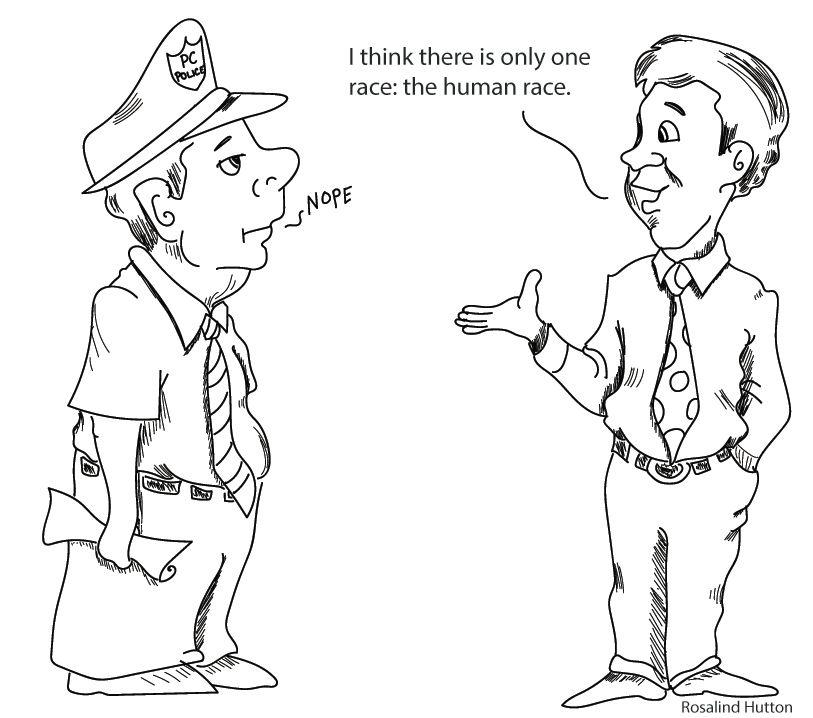At the beginning of August, the Democratic Socialists of America held their biannual convention in Atlanta to discuss what changes they would make to the American system should they hold political power. Their dreams of creating a socialist utopia aside, looking at how this organization operates within itself paints a frightening picture of American social order that they wish upon the country.
The convention itself seemed to devolve into a contest to see what delegate could be the most offended. They complained the use of the word “guys” to address everyone is a point of personal privilege because it is gender specific language, clapping should be replaced with jazz hands because it is less triggering to people with sensory overload and prefacing everything a delegate said with their personal pronouns. This laughable display of oversensitivity actually proved a hindrance when looking at the substantive nature of the convention and its real purpose.
This is the slippery slope of politically correct culture—forcing the word to conform to the needs of the individual for the sake of personal sensibilities. Nowhere is this mentality more prevalent than on a college campus, where personal values and reality itself are denied for the sake of being “woke” and what the left sees as socially conscious. It is an indoctrination effort, and it cannot be escaped. I personally have endured three separate diversity trainings for organizations I am a part of, and I am only a sophomore. Three critical aspects of how the Left tries to control the debate in the pursuit of being PC are the nature of privilege, micro-aggressions and safe spaces.
Let us begin with privilege, for it is the most insulting of the three tactics as well as the easiest to refute.
According to the National Conference for Community and Justice, the concept of privilege is defined as ”Unearned access to resources (social power) that are readily available to some people because of their social group membership.”
The social groups range from white people, heterosexual people, Christians, men and whoever else is deemed to be an oppressive class who needs to “check their privilege.” Of course, the nature of this concept is politically motivated to make the debate easier.
Joanna Williams of the American Conservative writes, “Calling on someone to check his privilege is a cheap form of ad hominem attack. It focuses on the person rather than what they are saying; it asks others to make judgments based on who an individual is rather than the strength of his argument.“
The political motivation is the primary concern, but think about the cultural repercussions of privilege as well, about how un-American the idea is. The idea is that some people are incapable of succeeding on the basis that they do not have advantages which people of a different skin color or sexual orientation do and, as a result, they need the government to level the playing field and for society to conform to their needs.
Let us shift to micro-aggressions, which Jenée Desmond-Harris of Vox defines as ”people’s biases against marginalized groups [that] reveal themselves in a way that leaves their victims feeling uncomfortable or insulted.”
The reason for micro-aggressions, according to Harris, is ”implicit bias which are the attitudes, stereotypes, and assumptions that we’re not even aware of, that can creep into our minds and affect our actions.”
The fundamental difference between outright bigotry and micro-aggressions is that micro-aggressions can be intentional or unintentional, and the very nature of it being a micro-aggression resides solely on the recipient and how they take what was said. The crux of the matter is this, there is a constitutional protection of freedom of speech in the First Amendment. There is no legal protection anywhere guaranteeing people have the right not to be offended. Why should I be forced to censor myself for the sake of other’s sensibilities?
PC culture’s effort to make the word a safe space is a misguided mission doing a disservice to everyone involved. We are fostering a spirit of entitlement, the false notion that the world will conform to everyone’s wishes and tell people they will never have to encounter something that will challenge their worldview or put them in a situation where they have to justify their position, a far cry from the reality in which we live.
In the same sense, PC culture tramples on the rights of people to express their opinions and ideas without being branded a bad person. Societally expected, self-imposed limitations on freedom of speech must be stopped before they encroach too far. If not, then what does freedom of speech really mean in the first place?





















































































